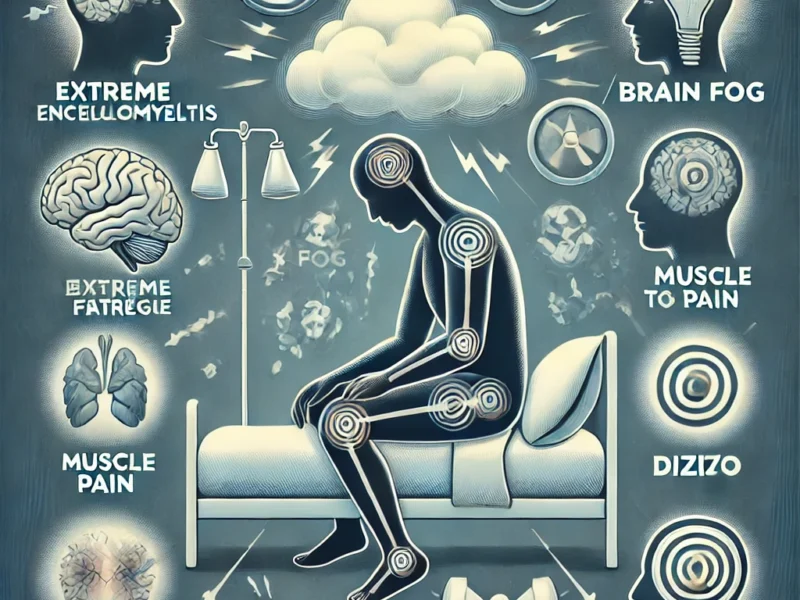
Introduction
In the whirlwind of modern life, stress is an ever-present companion for many. It often drives people to seek solace in the immediate gratification offered by junk food. However, this seemingly harmless coping mechanism can have profound effects on mental health, particularly anxiety. This comprehensive analysis explores how eating junk food when stressed can trigger anxiety, examining the intricate web of physiological, psychological, and behavioral factors involved.
The Allure of Junk Food in Times of Stress
Why We Crave Junk Food Under Stress
Stress triggers a cascade of hormonal responses in the body, notably the release of cortisol. Cortisol, known as the “stress hormone,” not only prepares the body for a fight-or-flight response but also increases appetite and cravings for high-calorie foods. The desire for junk food under stress is primarily driven by this physiological response, alongside the need for comfort and quick energy.
The Role of Dopamine
Junk food is often high in sugar and fat, which stimulates the brain’s reward system by releasing dopamine, a neurotransmitter associated with pleasure and reward. This release provides a temporary sense of relief from stress. However, this is a fleeting comfort that can lead to a vicious cycle of consumption, stress relief, and subsequent anxiety.
Emotional Eating as a Coping Mechanism
For many, eating junk food during stressful times becomes a form of emotional eating—a way to soothe negative emotions. This behavior is not merely about hunger but about seeking comfort from food. Emotional eating often leads to overeating and can create a dependency where food is used as a primary coping mechanism for dealing with stress.
Physiological Impacts of Junk Food on Mental Health
The Gut-Brain Axis
The gut-brain axis is a complex communication network linking the gastrointestinal tract and the brain. The gut microbiome, comprising trillions of bacteria, plays a significant role in this communication. Diets high in processed foods and sugars can disrupt the balance of gut bacteria, leading to inflammation and changes in brain function that may exacerbate anxiety and depression.
How Junk Food Disrupts Gut Health
High-fat and high-sugar diets can cause dysbiosis, an imbalance in the gut microbiome. This imbalance can impair the production of neurotransmitters like serotonin, which is predominantly produced in the gut and is crucial for mood regulation. A disrupted gut microbiome can lead to increased inflammation and oxidative stress, both of which are linked to anxiety disorders.
Blood Sugar Levels and Mood
Junk food often leads to rapid spikes and subsequent drops in blood sugar levels. These fluctuations can cause mood swings, irritability, and increased anxiety. Consistently high sugar intake is associated with insulin resistance, which can contribute to chronic inflammation and further exacerbate anxiety symptoms.
The Role of Insulin Resistance
Insulin resistance occurs when the body’s cells become less responsive to insulin, leading to higher levels of insulin and glucose in the blood. This condition is often linked to diets high in refined sugars and fats. Insulin resistance can contribute to metabolic syndrome, which includes a range of conditions such as hypertension, obesity, and type 2 diabetes—all of which have been associated with increased anxiety and depression.
Psychological Effects of Junk Food Consumption
The Anxiety-Junk Food Feedback Loop
The initial pleasure and stress relief provided by junk food consumption can lead to a feedback loop where individuals repeatedly turn to junk food in stressful situations. However, the subsequent guilt and physiological effects of eating unhealthy foods can increase anxiety, creating a cyclical pattern of stress and junk food dependency.
The Impact of Chronic Stress on Eating Behaviors
Chronic stress can alter eating behaviors significantly. For some, it leads to overeating and a preference for high-calorie, palatable foods. This can be linked to changes in the brain’s reward system and alterations in the body’s metabolic processes under prolonged stress. Over time, these changes can make it increasingly difficult to break free from the cycle of stress-induced junk food consumption.
Behavioral Aspects of Stress and Junk Food
Emotional Eating and Its Consequences
Emotional eating is the practice of consuming food—typically unhealthy options—in response to emotional distress rather than physical hunger. This behavior is often a learned response to stress and can become a habitual way of coping with negative emotions. Emotional eating not only leads to potential weight gain and metabolic issues but also fosters an unhealthy relationship with food, where eating becomes a primary means of emotional regulation.
Mindless Eating Under Stress
Stress often leads to mindless eating, where individuals consume food without paying attention to their body’s hunger and fullness signals. This type of eating is typically driven by the need to distract from stressful thoughts or feelings. Mindless eating can result in overconsumption of junk food and a lack of satisfaction from meals, further exacerbating stress and anxiety levels.
Breaking the Cycle: Healthier Alternatives
Practicing Mindful Eating
Mindful eating involves paying full attention to the experience of eating and savoring each bite. This practice encourages individuals to listen to their body’s hunger and fullness cues, helping to prevent overeating and promoting a healthier relationship with food.
Steps to Practice Mindful Eating
- Slow Down: Eat slowly and chew thoroughly. This gives your body time to register fullness.
- Focus on Your Food: Avoid distractions such as TV or smartphones while eating.
- Savor the Experience: Pay attention to the flavors, textures, and smells of your food.
- Listen to Your Body: Eat when you are hungry and stop when you are satisfied, not full.
Developing Effective Stress Management Techniques
Effective stress management is crucial for reducing the urge to consume junk food. Techniques such as regular physical activity, meditation, deep breathing exercises, and hobbies can help manage stress and reduce the dependence on food for emotional relief.
Exercise and Mental Health
Physical activity is a well-documented method for reducing stress and improving mental health. Exercise releases endorphins, which are natural mood elevators, and helps reduce cortisol levels, providing a natural buffer against the effects of stress and anxiety.
The Role of Meditation and Mindfulness
Meditation and mindfulness practices can help individuals manage stress by promoting relaxation and improving emotional regulation. These practices involve focusing the mind on the present moment, reducing the tendency to ruminate on stressors and promoting a sense of calm and well-being.
Nutritional Strategies for Reducing Anxiety
Incorporating a balanced diet rich in nutrients that support brain health can significantly reduce anxiety. Foods rich in omega-3 fatty acids, magnesium, and vitamins B and D have been shown to support mental health and reduce anxiety symptoms.
Omega-3 Fatty Acids
Omega-3 fatty acids, found in fatty fish like salmon and mackerel, flaxseeds, and walnuts, are crucial for brain health. They help reduce inflammation and are associated with lower levels of anxiety and depression.
Magnesium-Rich Foods
Magnesium plays a vital role in brain function and mood regulation. Foods high in magnesium include leafy greens, nuts, seeds, and whole grains. Adequate magnesium intake can help manage anxiety and promote a sense of calm.
Vitamins B and D
Vitamins B and D are essential for maintaining mental health. Vitamin B6, found in poultry, fish, and bananas, supports the production of neurotransmitters that regulate mood. Vitamin D, obtained from sunlight exposure and foods like fatty fish and fortified dairy products, is crucial for mood regulation and has been linked to lower levels of depression and anxiety.
Conclusion
The relationship between stress, junk food consumption, and anxiety is complex and multifaceted. While junk food can provide temporary relief from stress, it often leads to a cycle of increased anxiety and further stress. Understanding this relationship is key to developing healthier coping strategies and making dietary choices that support mental well-being.
By adopting mindful eating practices, developing effective stress management techniques, and focusing on a balanced diet rich in nutrients that support mental health, individuals can break the cycle of stress-induced junk food consumption and reduce their risk of anxiety.
For more insights into managing stress and improving mental health through diet, consider exploring these resources:
- Harvard Health – Nutritional Strategies to Ease Anxiety
- Medindia – Stressed and Craving Junk Food? It Might Be Making Your Anxiety Worse
- Psychology Today – How to Stop Overeating When You’re Anxious
- Wake-Up Call: Obesity Becomes #1 Cause of Liver Cancer, Surpassing Vices
- Non-Prescription Weight Loss Pills: An In-Depth Scientific Exploration
By recognizing the triggers and understanding the impacts of stress-related junk food consumption, individuals can take proactive steps to manage stress and anxiety more effectively, fostering a healthier, happier life.

